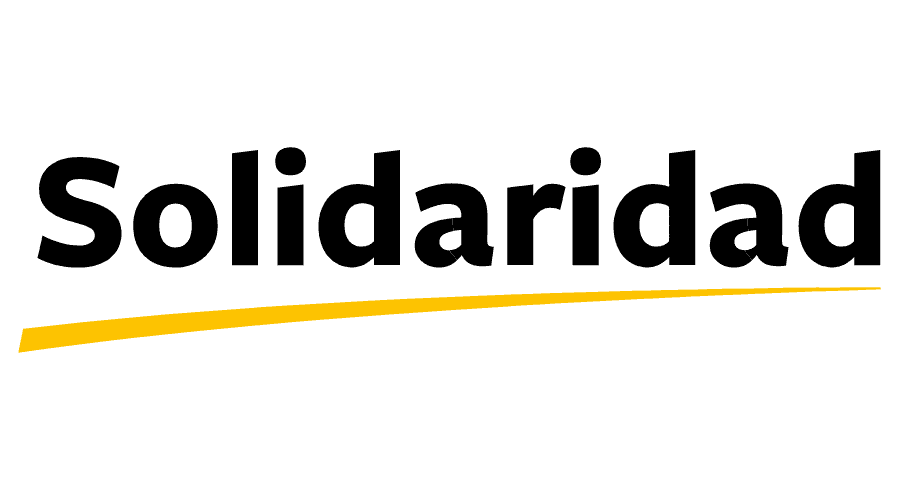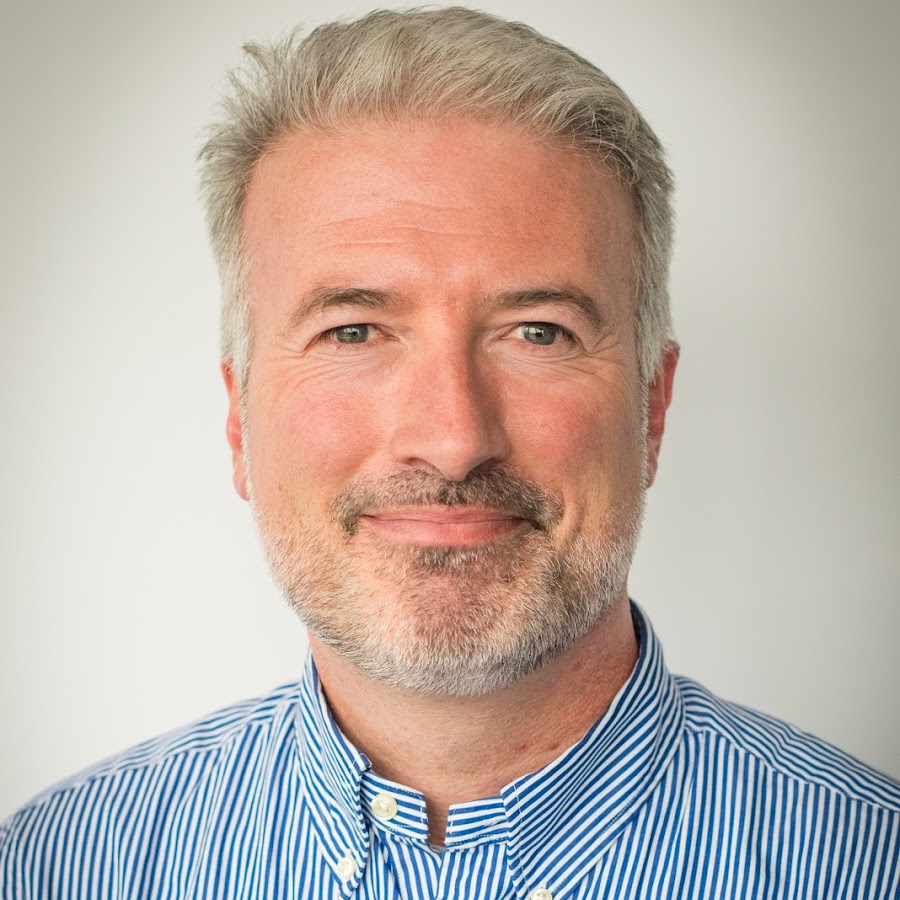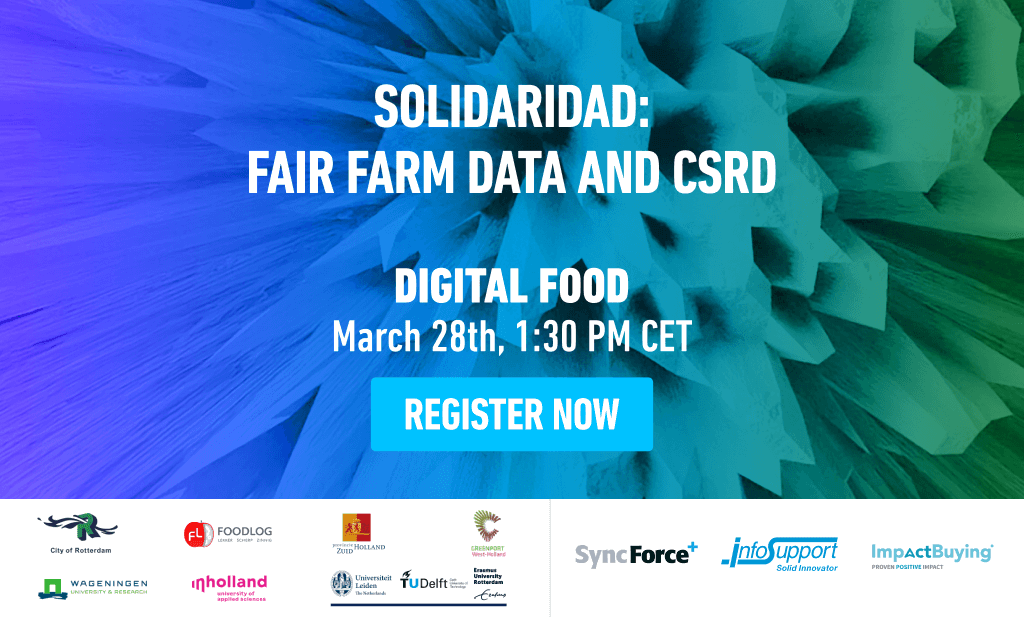Join us for our third 2023 Digital Food Webinar in this series on Tuesday, March 28th, from 1:30 PM till 2:15 PM (CEST) + 45 more minutes of informality. Registration is no longer possible.
Solidaridad is an international civil society organization with over 50 years of experience in developing solutions to make communities more resilient. It started out supporting repressed communities in Latin America. Today it fosters international cooperation with people throughout the value chain, with a focus on small scale and family farmers, and workers on farms, in mines, and in supply chains and their communities.
Solidaridad helps trade to be fair. Recently, the organization realized data determine the balance of power in the value chain. Fair trade needs fair data. That’s why Solidaridad decided farmers mustn’t wait for sustainability requirements from buyers, but should set up their own format to be an equal partner in the sustainable food chain.
Solidaridad’s Head of Policy Frederik Claasen will explain how joint data formats will empower farmers in the international food chain, the planning of the Fair Farm Data project and the people and partnering organizations behind it.
CSRD and Scope 3
The initiative is especially important as the EU pushes forward its CSRD reporting rules requiring retail organizations and processing companies to specify their scope 3 emissions policies. Scope 3, obviously, is all about farm level. No major European food processing or retailing company can do without farm data anymore. All of a sudden an NGO-like institution is at the heart of European legislation.
All of a sudden an NGO-like institution is at the heart of European legislationSolidaridad works in over 40 countries, on five continents, through seven independently supervised regional offices.
Solidaridad helps trade to be fair. Recently, the organization realized data determine the balance of power in the value chain. Fair trade needs fair data. That’s why Solidaridad decided farmers mustn’t wait for sustainability requirements from buyers, but should set up their own format to be an equal partner in the sustainable food chain.
Solidaridad’s Head of Policy Frederik Claasen will explain how joint data formats will empower farmers in the international food chain, the planning of the Fair Farm Data project and the people and partnering organizations behind it.
CSRD and Scope 3
The initiative is especially important as the EU pushes forward its CSRD reporting rules requiring retail organizations and processing companies to specify their scope 3 emissions policies. Scope 3, obviously, is all about farm level. No major European food processing or retailing company can do without farm data anymore. All of a sudden an NGO-like institution is at the heart of European legislation.

Frederik Claasen joined Solidaridad in 2017. He has a international background in finance with impact and consulting in strategic economic development projects. Today he is Head of Policy and coordinates the Fair Farm Project.

Frederik Claasen, copyright: Jaimi Nieli

Frederik Claasen, copyright: Jaimi Nieli



